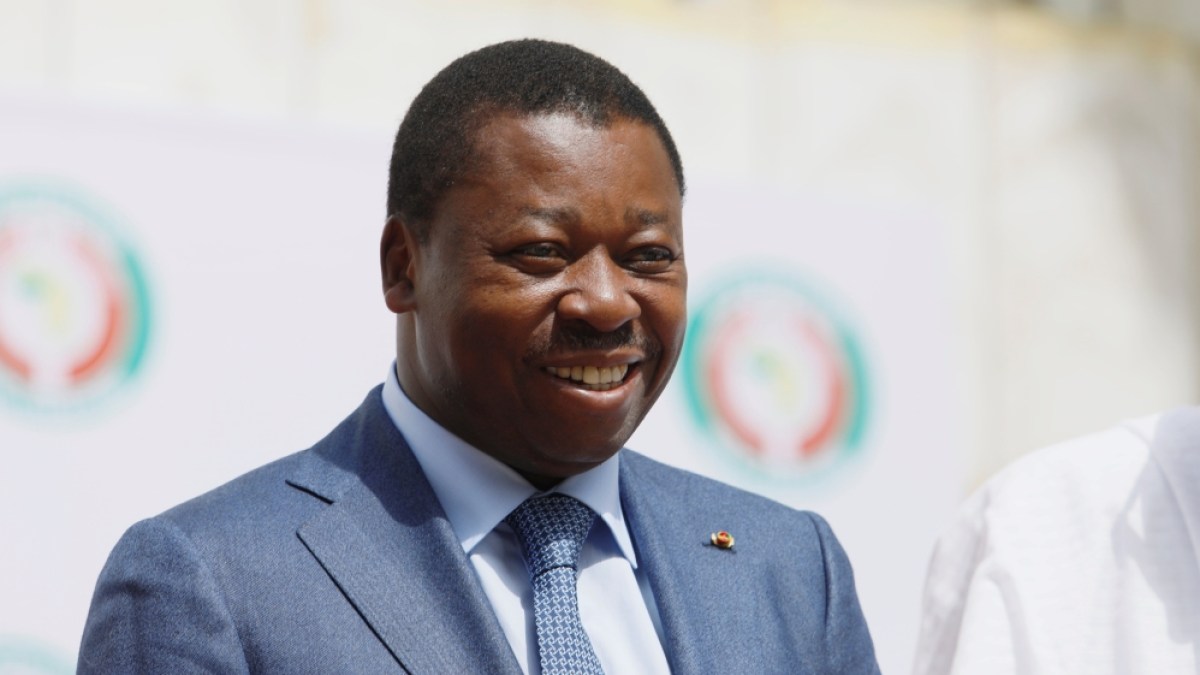
Opponents of the changes fear they could allow President Faure Gnassingbé's term to be extended.
Lawmakers in Togo approved changes to the constitution related to term limits and how presidents are elected, which some opposition politicians and civil society groups condemned as a constitutional coup.
Togo's parliament had already adopted the amendments on March 25, but the reforms led to a backlash from the opposition, so President Faure Gnassingbé called for further consultations and a second parliamentary vote.
Lawmakers gave final approval to the reform late Friday, just days before the April 29 legislative elections that were also postponed due to issues related to constitutional amendments.
The second reading was approved with all 87 politicians present approving the new system, under which the president would not be elected by universal suffrage, but by members of Parliament.
The amendments also introduced a parliamentary system of government and shortened presidential terms from five years to four years with a maximum of two terms.
It does not take into account the time he has already spent in office, which could enable Gnassingbe to remain in power until 2033 if he is re-elected in 2025, a highly likely scenario with his party controlling parliament.
Opponents of these changes fear that they will allow the extension of the president's 19-year rule and his family's control of power. His father and predecessor, Gnassingbe Eyadema, seized power in the West African coastal nation through a 1967 coup.
In a statement issued on Saturday, the opposition coalition Dynamic for the Majority of the People (DMP) and other signatories said the constitutional changes were a political maneuver to allow Gnassingbe to extend his term for life.
They said: “What happened in the National Assembly yesterday is a coup.”
He added: “A large-scale movement will be organized over the next few days to say no to this constitution.”
“Maintain power by any means”
“Togo has just turned a new page on its path to a more inclusive and participatory democracy. This is a relief and a source of pride for us,” Kumyalo Anate, an MP for Gnassingbe’s ruling United Patriotic Union party, told reporters after Friday’s vote.
However, a group of 17 civil society organizations said the amendments amounted to a “project…expropriation of power by a regime that is systematically opposed to any form of democratic change,” in a joint statement they issued this week. They also called on West Africa's main political and economic bloc, ECOWAS, to take action in response.
“Time has shown us that the main interest of his regime is to maintain power by any means,” Nathaniel Olympio, head of the opposition Togolese party, told AFP before the vote.
“The job of council president gives a person the freedom to exercise power in an unlimited way, so we logically believe that this is a position he would hold for himself.”
Several other African countries, including the Central African Republic, Rwanda, the Republic of Congo, Ivory Coast and Guinea, have made other constitutional and legal changes in recent years allowing presidents to extend their terms in office.
The West and Central Africa region has also witnessed eight military coups in the past three years.
Violent police crackdowns on political demonstrations were routine under Gnassingbé, as they were during his father's long rule.
Faure Gnassingbé was last re-elected in 2020 by an overwhelming majority that was contested by the opposition.
The new constitution also provides for the creation of a new role, the Prime Minister, with broad authority to manage the affairs of government.




More Stories
Journalists convicted in Hong Kong sedition case
Stand News: Hong Kong journalists convicted of sedition in case critics say highlights erosion of press freedom
Shark decapitates teen off Jamaica coast